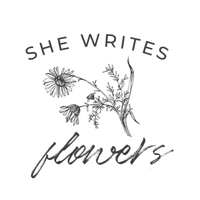3 Things I Do as a Food Allergy Parent That Might Not Make Sense to You
Why Food Allergy Parents Are Always Playing Defense
She started crying in her high chair.
It doesn't sound out of the ordinary for a two-year-old, but in hindsight, it was odd. My daughter had just woken up from a nap and was eating a snack— her absolute favorite time of day. But within a few minutes, she started sobbing. "Aww, did you not sleep well?" I asked her, gently pulling her from the highchair.
I swayed back and forth, rubbing and patting her back as I held her. But she continued to cry, and then she sneezed. Over and over and over again, as if she couldn't stop. She must be getting sick I thought to myself as I wiped her nose repeatedly. I laid her head on my shoulder, trying to comfort my now-inconsolable toddler.
I felt a sense of panic, but I wasn't sure why—a mother's intuition perhaps. I sat down on the couch and turned her to face me. She was unrecognizable. Over the course of those few minutes, her face was pale and had swelled to nearly double its size. Her entire body had broken out in splotchy pink hives. She was screaming and struggling to keep her eyes open. I grabbed the snack package off her high chair and immediately called 911.
"I think my daughter is having an allergic reaction! We need help, please, as fast as you can!" I pleaded, knowing it was a 25-minute drive from our small town to the nearest hospital. By the time we loaded up into the ambulance and arrived at the ER, she was violently vomiting— a tell-tale sign of anaphylaxis.
Tree nuts.
Food allergies are so common now that we've become desensitized to them as a society. I recently watched a skit where the comedian joked about kids today having allergy lists a mile long. "Oh, little Timmy is allergic to gluten, pollen, tree nuts, grass, soy, wheat, milk…" he teased. Food allergy parents often get branded as overprotective, and I'll be the first to admit I used to hold that opinion as well. What I didn't understand at the time was that food allergy parents are in a perpetual state of defense. When it comes to life and death (and yes, it really is that serious)— we will always err on the side of caution.
So here are three things I do as a food allergy parent that might not make sense to you.
I'll ask you to see the food package after you've already checked it yourself. There's more than meets the eye regarding how labels are written. I've made it a habit to double (frequently, triple) check myself before giving her any new food. This includes food she's had before since manufacturing processes can change and differ depending on how it’s packaged (i.e. large Hershey’s bars are safe, but snack-size ones are not).
Labels can be tricky, and foods that don't technically contain tree nuts may still be contaminated because of shared manufacturing. It makes just about any food an allergy culprit— I'm talking foods you would never expect to contain tree nuts: hot dog buns, pudding, gummy candy, barbeque sauce… everything is fair game. It's a lot, and if you're in a rush or don't know exactly what you're looking for, it's incredibly easy to miss.
I'll ask you to take two EpiPens no matter where you're going with her. Even if it's just on a walk to the park. Yes, I know it's doubtful she'll be exposed to her allergen in certain places (like the park), but there are a couple of reasons for this. First, I want her to develop the habit of knowing to have her EpiPens with her at all times. Second, most allergic reactions happen within seconds or minutes of exposure, so it's a non-negotiable that both EpiPens are always within reach.
Why two? In 2016, the FDA received over 100 complaints of EpiPen failures due to malfunction. The Annals of Allergy, Asthma & Immunology also discovered that in a study of over 100 people, only 84% of people used the EpiPen correctly. Plus, EpiPens aren't the treatment. They merely buy time to get to a hospital— about 10-15 minutes, so having a backup is a must.
I'll ask you not to share drinks or food utensils with her. Yes, it applies even if you're family. Food allergens can remain in saliva for several hours after eating. The almond butter toast you ate for breakfast could be in the water bottle you drink at lunch, and even a tiny amount can be enough to trigger a severe allergic reaction.
But here's something I'll never ask you to do. I'll never ask you to accommodate my daughter at the group's expense. Although I always appreciate the gesture, it's never expected. Birthday parties, sports events, family gatherings— she knows that she probably won't be able to partake in the special treats offered at these types of events, and that's okay. As she gets older, my goal is to equip and empower her to pilot this allergy by herself.
"These safe for me?" It's a question my four-year-old asks every time she's offered a new food. As a parent, your child trusts you to protect them in dangerous situations, but as a food allergy parent, your child trusts you to protect them every single time they eat.
And that's a responsibility I'll never take lightly.
If you enjoyed this blog post, I think you’ll love Here’s What No One Tells You About Grace. It’s all about grace being the most underrated “medicine” in a relationship, and how your marriage can reap the benefits of it starting today!


